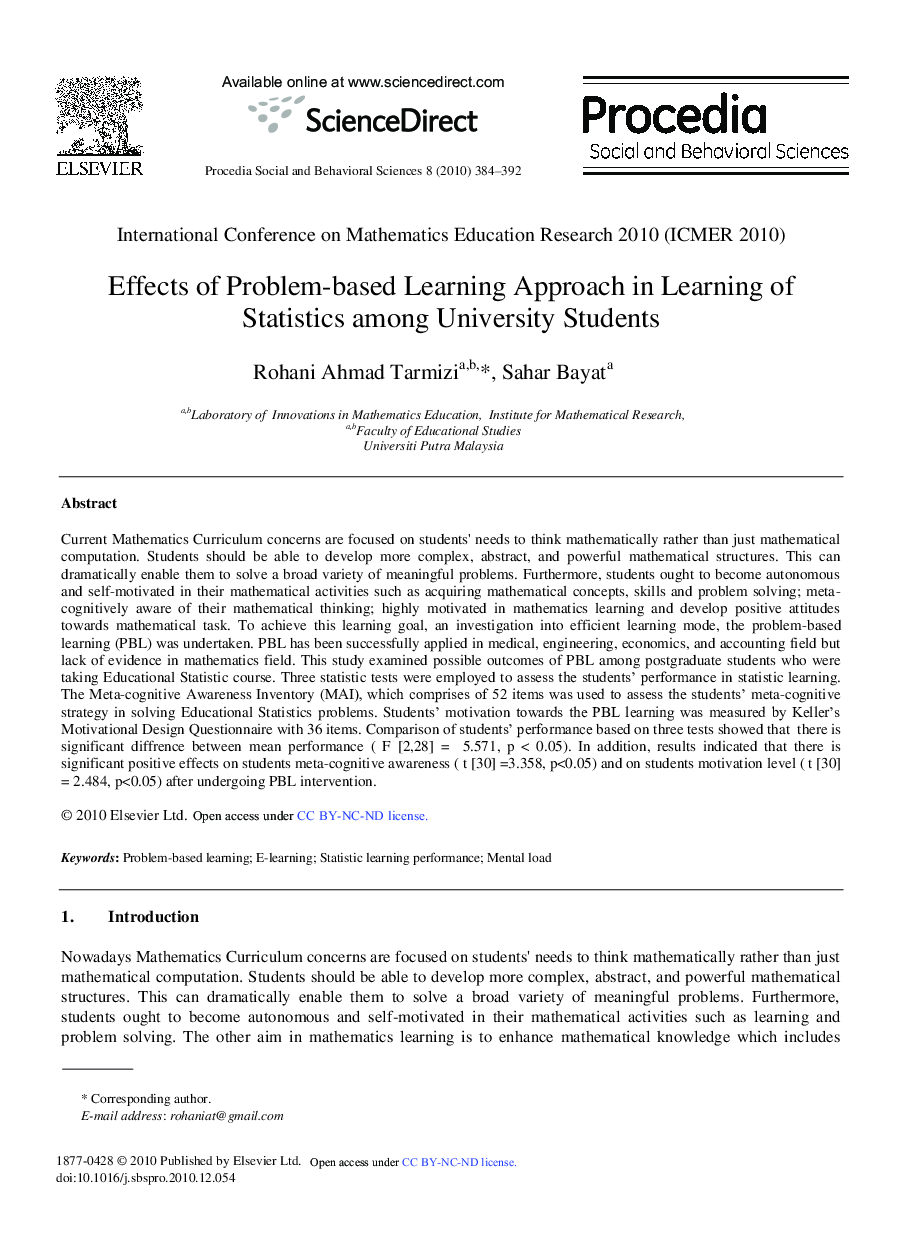| Article ID | Journal | Published Year | Pages | File Type |
|---|---|---|---|---|
| 1124777 | Procedia - Social and Behavioral Sciences | 2010 | 9 Pages |
Current Mathematics Curriculum concerns are focused on students’ needs to think mathematically rather than just mathematical computation. Students should be able to develop more complex, abstract, and powerful mathematical structures. This can dramatically enable them to solve a broad variety of meaningful problems. Furthermore, students ought to become autonomous and self-motivated in their mathematical activities such as acquiring mathematical concepts, skills and problem solving; meta-cognitively aware of their mathematical thinking; highly motivated in mathematics learning and develop positive attitudes towards mathematical task. To achieve this learning goal, an investigation into efficient learning mode, the problem-based learning (PBL) was undertaken. PBL has been successfully applied in medical, engineering, economics, and accounting field but lack of evidence in mathematics field. This study examined possible outcomes of PBL among postgraduate students who were taking Educational Statistic course. Three statistic tests were employed to assess the students’ performance in statistic learning. The Meta-cognitive Awareness Inventory (MAI), which comprises of 52 items was used to assess the students’ meta-cognitive strategy in solving Educational Statistics problems. Students’ motivation towards the PBL learning was measured by Keller's Motivational Design Questionnaire with 36 items. Comparison of students’ performance based on three tests showed that there is significant diffrence between mean performance (F [2,28] = 5.571, p < 0.05). In addition, results indicated that there is significant positive effects on students meta-cognitive awareness (t [30] = 3.358, p < 0.05) and on students motivation level (t [30] = 2.484, p < 0.05) after undergoing PBL intervention.
